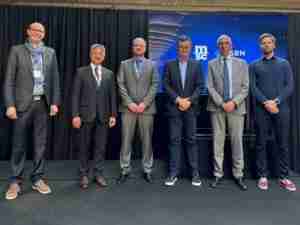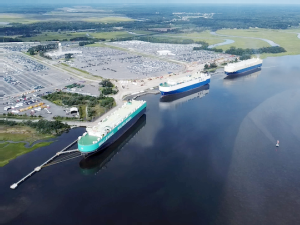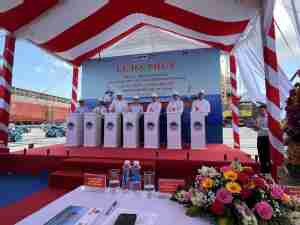Calls for an IMO-Led Research and Development Programme
The World Shipping Council (WSC) and its members welcome the International Maritime Organization’s (IMO) agreement on an ambitious strategy to reduce greenhouse gas emissions from international shipping.
This week’s action by the Marine Environment Protection Committee (MEPC) is important for both political and practical reasons. In political terms, the agreement demonstrates to the world that IMO Member governments can find a common way forward despite real differences of opinion. This is a global challenge, and it can only be effectively addressed at a global level. As a practical matter, the size of the planned emissions cuts makes it clear that the shipping industry can only meet these objectives by a transition over time to new fuels and new propulsion systems.
The MEPC’s Initial Strategy is a significant achievement, but the real work lies in front of us. It is now clear that the long-term future of the international shipping industry will not be based on burning fossil fuels. What is not clear is which technologies and which fuels will allow the industry to continue to serve world trade sustainably in the next half of this century and beyond.
Moving from where we are now to a new energy profile for the future of shipping will not happen on its own. The industry faces a substantial engineering challenge to identify, develop, and deploy the new fuels and new technologies that will eliminate carbon emissions from shipping.
The World Shipping Council and other organizations submitted a paper last year to MEPC describing the need for a substantial, focused, and sustained research and development effort – organized through the IMO – to create the technological tools necessary to implement the ambitious climate goals that the IMO has now articulated. Through the debate at the IMO, many nations and organizations have emphasized the critical role of research and development. WSC looks forward to working with Member States and others to turn that shared R&D concept into a reality.
WSC President and CEO John Butler took the long view on reducing GHG emissions from shipping: “As hard as it was to reach political agreement this week, what comes next will be harder. We have to shift from a political mindset to an engineering mindset. There are no quick fixes here, but we can solve this problem. To do that we must establish a maritime research and development effort that will deliver the tools necessary to transform the industry. That is the next step for the IMO.”









